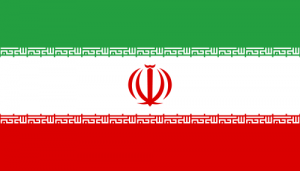Iran cuts off access to popular Web sites

CNET's Charles Cooper is reporting that Iran is cutting its citizens off from many major Web services and sites. You'd think authoritative governments would learn from the lessons of the Arab Spring. Egypt, Libya, and Syria all turned off the Internet. Egypt and Libya now have new governments and Syria is fighting a civil war. Cutting off the people off from the Internet is clearly such a smart move.
Unlike Egypt, Libya, and Syria, though Iran hasn't simply turned off external Internet access. Instead, the Iranian government appears to be blocking access to popular, external e-mails services such as Gmail, Hotmail and Yahoo. In addition access to at least one major social network, Facebook, seems to have been cut.
Other reports that claim to be from Iran say that "Since Thursday [the] Iranian government has shut down the https protocol which has caused almost all Google services (gmail, and google.com itself) to become inaccessible. Almost all websites that reply on Google APIs (like wolfram alpha) won't work. Accessing to any website that replies on https (just imaging how many websites use this protocol, from Arch Wiki to bank websites). Also accessing many proxies is also impossible. There are almost no official reports on this and with many websites and my email accounts restricted I can just confirm this based on my own and friends experience."
Why is this happening? There have been some reports of protests being planned for tomorrow, which is when Iranian regime celebrates its 1979 Islamic revolution.
Like China, Iran has its own state-run firewall. In recent days, this firewall has grown more restrictive. According to The Washington Post, methods which have been used in the past to get around the national firewall have started failing. The eventual goal is for Iran to create a "National Internet." In this "Internet," Iranian users could only see approved sites and sites from outside the country.
Ironically, even while Iran is clamping down on its country's Internet users, companies like Twitter, which played a major role in the abortive Iranian 2009 protests, are now self-censoring user content in some countries. And, while de facto Internet censorship attempts such as Stop Online Piracy Act (SOPA) have failed for now, other such attempts to censor the Internet, in the name of copyright instead of state security, such as the UK's Digital Economy Act are continuing on.
Related Stories:
Twitter begins censoring content: How this will affect you
